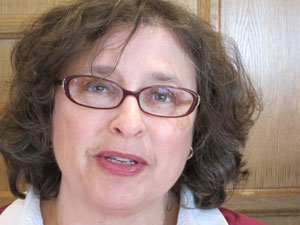|
Old Wood
Halfway through my last dinner, I saw the blaze,
unfathomable as the Grand Canyon creaking shut.
The owner confirmed: Everyone on staff is following
as firefighters poured the river onto the flames.
When the spire lifted as it toppled, people gasped,
wailed as though a suicide had jumped.
The day before I’d walked the quais,
browsed the bookinistes, shot mood pics of the towers,
total cornball, through the mist of new leaves.
Arrow of God, the spire had fallen before the sun was down,
The fire turned the sky red, turned the cross white-hot.
Not all the water in the world, not even the river could help.
People stood and watched, sang and wept.
Rains came only the next morning.
Ash sifted down catching, reflecting coral light
I’d brought my husband’s ashes in a carved wooden box.
No need, no need.
After dinner, the owner walked me to the door. We sniffed the air.
Vieux bois, she shrugged, wincing. Old wood
published in New Verse News, 2019
Gifts of the White Dog
when White Dog raises his hackles
refuses to sniff your hand
when White Dog refuses to know your voice
when White Dog howls for no reason
when White Dog howls at the open door for no reason
and digs a hole in your garden
then these acts keep away your true family
when White Dog sleeps, paws curled, tail outstretched
after digging a hole in your garden
then these acts do not signal a breakthrough
then White Dog foretells death
when White Dog howls outside at night.
when White Dog howls three times, then falls silent.
when White Dog howls once, then falls silent.
when White Dog howls in front of a house where someone is ill
sniffing out landmines and trapped people
then White Dog tells you, Die a symbolic death
perhaps White Dog empowers and enlivens you, like yeast
perhaps White Dog asks to become part of your life stream
perhaps White Dog longs to meet other beings like you
but White Dog is howling at the open door for no reason
perhaps White Dog adores you
perhaps White Dog believes you
perhaps White Dog is light and shadow
in vibrational affinity
perhaps White Dog consoles you
but does White Dog forgive you?
published in Unlost, 2019
Not a Word
Kafka has become a composer of wait music. He is tired of writing words and then unwriting words, tired of explaining why nothing has been published. He has decided to become part of the background, albeit an irritating part. What people like best about his music is when it stops. That is, they love his absence. They love his absence! The satisfaction is so intense he must keep it secret.
He excels at tunes that sound like something you’ve heard before but cannot name, cannot place, tunes like trying to remember a dream. The tunes sound like they are going somewhere, but they only route you past the self-service menus, are punctuated only by the repeating claims that you are important, that someone is busy serving someone else but not you, never quite you. You are never important enough to feel anything but ashamed of your need to get through. A soothing base line moves the tune along.
Kafka draws on his experience writing Das Schloss, often translated as The Castle. Should be, really, The Keep or The Hold or even The Lock. When someone called the castle switchboard, they heard angelic voices in heavenly choir. Ahhhhhhh. Kafka strives for that eternal coda of bland divinity, of eternal indifference. His music leads to nothing but itself, ending on the same note as set the tune into motion, ready to play again as many times as the caller will endure.
published in Riddled with Arrows, 2017
http://www.cloudslikemountains.blogspot.com/
|

|